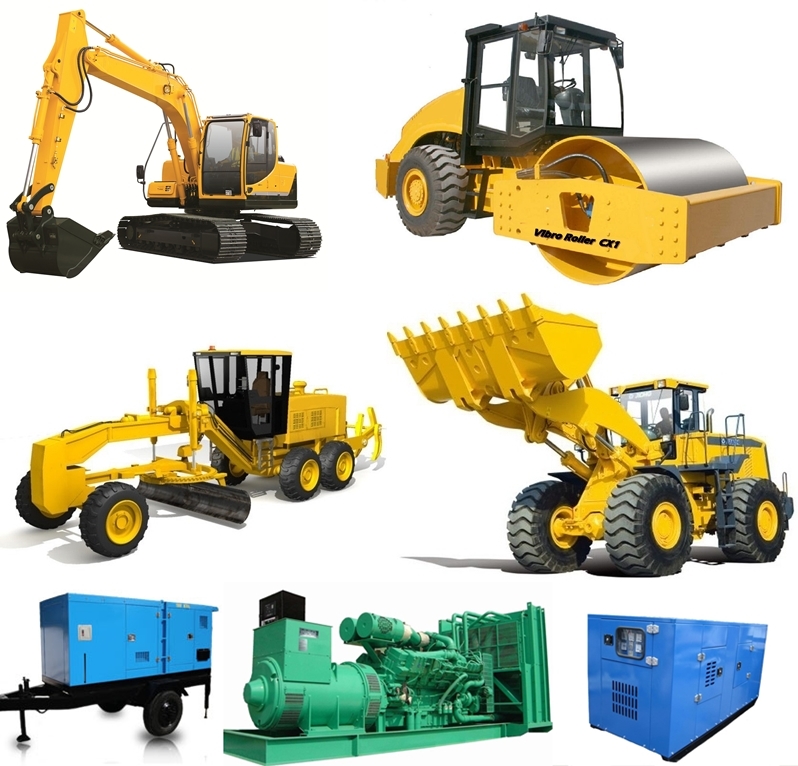Maximize Your Spending Plan by Recognizing the Expenses Connected With Construction Tools Services
Understanding the full range of expenses linked with building and construction devices rentals is essential for optimizing your budget. What techniques can be used to effectively handle these prices and make certain a more effective rental experience?
Overview of Rental Prices
When thinking about construction equipment services, comprehending the associated expenses is paramount for reliable budgeting and project preparation. Rental expenses can differ substantially based on a number of factors, consisting of equipment type, period of leasing, and area. The initial rental cost frequently mirrors the equipment's market need and its associated operational capacities, influencing the general expenditure.
Along with the base rental price, ancillary expenses might arise, such as transportation costs, fuel surcharges, and upkeep costs. It is important to make up these additional costs to precisely analyze the total expense of renting out equipment. The rental duration can influence pricing; longer rentals may qualify for reduced prices, while temporary rentals might incur higher day-to-day costs.

Failure of Rental Prices
A thorough understanding of rental prices is necessary for specialists and job managers aiming to optimize their budgets. Rental prices for building and construction tools generally include several components, consisting of base prices, time-based fees, and usage costs.
Base prices are the core fees associated with the rental of the tools, commonly figured out by the type and dimension of the equipment. These rates can differ substantially, influenced by factors such as tools need, availability, and local market patterns. Time-based charges, which might be daily, weekly, or monthly, serve to accommodate various job timelines and rental durations.
In addition, rental rates might include use charges, which apply when equipment is used beyond a defined threshold, making certain that the rental firm can account for damage. Seasonal demand fluctuations can likewise affect rental prices, with peak construction seasons usually commanding greater rates.
Additionally, understanding the rental business's policies relating to upkeep and insurance coverage can provide additional understanding into the overall expense structure. By examining these parts, specialists can make enlightened decisions, making certain the selection of rental devices straightens with both project demands and budget restrictions.
Additional Fees to Think About
Comprehending the details of added costs is essential for professionals to handle their general leasing costs properly. Past the typical rental prices, various additional charges can considerably affect the overall cost of equipment rental. These fees frequently include delivery and pick-up costs, which can differ based upon range and logistics included in carrying the devices to and from the task site.
Moreover, some rental companies might enforce fuel surcharges if the equipment is returned with much less gas than when leased. It is likewise vital to understand potential cleansing costs, especially for specific equipment that requires thorough upkeep after usage.

Thoroughly assessing the rental contract and clarifying these added charges upfront can assist professionals stay clear of unforeseen costs and make certain that spending plans stay undamaged throughout the job lifecycle.
Repair And Maintenance Expenses
Routine upkeep and repair work expenditures are commonly neglected variables that can considerably affect the overall price of construction devices rentals. When leasing tools, it is essential to take into consideration not just the rental fees however additionally the prospective expenses related to keeping the equipment in optimum operating condition.
Lots of rental firms include crane rental companies fundamental upkeep as part of the rental contract; nevertheless, extra comprehensive fixings or unexpected break downs can lead to additional expenses. It's important to assess the rental contract thoroughly to comprehend what maintenance solutions are covered and what duties drop on the renter.
Moreover, devices that is not properly maintained can lead to inefficiencies on duty site, potentially triggering hold-ups and boosting task prices. To mitigate these risks, it is advisable to conduct regular evaluations and preserve open communication with the rental company relating to any type of concerns that develop during use.
Insurance Coverage and Responsibility Costs
Insurance policy and responsibility costs are crucial components that can considerably impact the total expenditure of building and construction devices leasings (scissor lift rental). These costs ensure that both the rental firm and the customer are safeguarded from potential economic losses developing from accidents, damages, or theft during the rental duration

Additionally, customers should understand any deductibles or exclusions in the insurance plan, as these can influence possible out-of-pocket costs. Recognizing the terms and lift machine construction conditions of any kind of insurance protection is vital to prevent unanticipated costs. Eventually, budgeting for insurance policy and liability costs can aid guarantee a smoother rental experience and secure versus financial dangers linked with construction jobs.
Verdict
To conclude, an extensive understanding of the costs connected with building devices services is essential for effective budget plan monitoring. By examining rental rates, added fees, maintenance costs, and insurance policy requirements, companies and individuals can decrease unanticipated expenses. This strategic approach not only enhances cost-effectiveness but also guarantees that jobs advance smoothly and efficiently. Ultimately, informed decision-making regarding equipment services adds to the total success of building undertakings.
Rental costs can differ dramatically based on numerous elements, including tools type, duration of service, and place (aerial lift rental). The rental duration can impact rates; longer leasings might qualify for discounted prices, while short-term services may sustain higher daily costs
By carrying out comprehensive study and involving with reputable rental firms, professionals can properly navigate the intricacies of rental pricing, inevitably maximizing their economic resources.
Past the standard rental rates, numerous supplemental costs can considerably influence the total expense of tools rental. Rental business often supply responsibility insurance coverage that covers injuries to 3rd events or damage to residential property, while tools damage insurance policy can cover the cost of repair services or substitute if the rented devices is harmed.